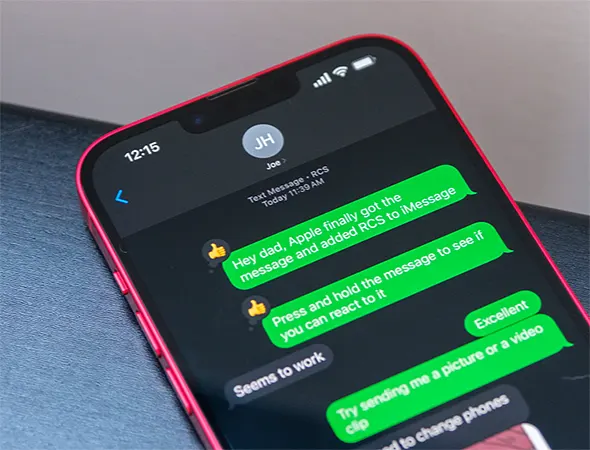
With the introduction of RCS messaging on iPhones with iOS 18 earlier this year. The experience of texting Android users has seen a remarkable enhancement. However, it is not important to note that RCS messaging on iPhones is only functional if the carrier is supportive.
Initially, only major carriers were on board with the standard however, the roster has expanded in recent months. Apple has been diligently monitoring the situation and has also recently refreshed its support page to indicate which U.S. carriers and MVNOs enable RCS on iOS 18.
The list includes C Spire, AT&T, Cricket, Consumer Cellular, First Net, Metro by T-Mobile, H2O Wireless, Red Pocket, PureTalk, Spectrum, US Cellular, Visible, Tracfone/ Straight Talk, Xfinity Mobile and Verizon.
As it has been noted by Android Authority, this list is not exhaustive. Boost Mobile has introduced RCS support with the rollout of iOS 18.2, yet it is missing from the support page of Apple.
In addition to this, some carriers such as Google Fi and US Mobile are absent with Google Fi mentioning that only Apple can activate RCS for its users. The advantage of RCS lies in its internet-based messaging, which surpasses traditional cellular signals by unlocking a plethora of advanced features.
For example, sharing images as well as videos is no longer subjected to extreme compressions which has resulted in significantly improved quality on the receiving end. It also consists of features such as typing indicators, read receipts as well as reactions. These elements are typically absent when not using iMessage or other third-party messaging platforms.
However, one of the notable omissions is the end-to-end encryption. While Apple has assured that encryption is on the horizon, RCS messaging between iPhone and Android remains as vulnerable as SMS, to the extent that the FBI gives out advice against its use.
